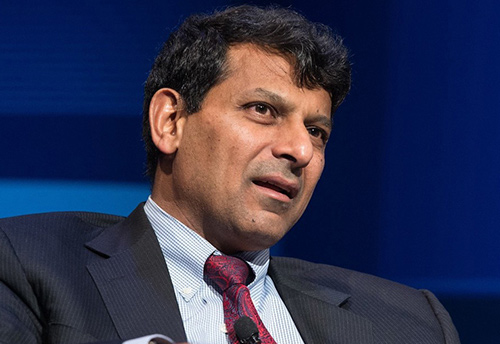Both MUDRA & Kisan Credit Card, while popular, have to be examined more closely for potential credit risk: Raghuram Rajan
Updated: Sep 11, 2018 08:36:34am

Both MUDRA & Kisan Credit Card, while popular, have to be examined more closely for potential credit risk: Raghuram Rajan
New Delhi, Sept 11 (KNN) The Reserve Bank of India’s (RBI’s) former Governor Raghram Rajan has warned that the next build-up of non-performing assets (NPAs) could be in the loans to medium and small enterprises (MSMEs) under the SIDBI-run credit guarantee scheme.
According to a Bloomberg Report, he said the government should focus on sources of the next crisis, and in particular, it should refrain from setting ambitious credit targets.
Rajan said credit targets were sometimes achieved by abandoning appropriate due diligence, creating the environment for future NPAs.
According to a Bloomberg Report quoting a 17-page note to the Parliamentary Estimates Committee, Rajan said both the MUDRA loans as well as the Kisan Credit Card, while popular, have to be examined more closely for potential credit risk. The Credit Guarantee Scheme for MSME (CGTMSE) run by SIDBI is a growing contingent liability and needs to be examined with urgency.
The committee had invited Rajan to brief it on the matter after former chief economic advisor Arvind Subramanian praised him for identifying the NPA crisis and trying to resolve it.
Launched in 2000 the CGTMSE, now known as UDAAN, has recorded over 25 lakh cumulative guarantee approvals in 2016-17 with an aggregate loan amount of over Rs 1.25 lakh crore.
Suggesting that the government should refrain from setting ambitious credit targets or waiving loans, Rajan reiterated that loan waivers vitiate credit culture and stress state budgets.
“Agriculture needs serious attention, but not through loan waivers. An all-party agreement to this effect would be in the nation’s interest, especially given the impending elections,” said Rajan.
Pointing out that the judicial system is not equipped to deal with every bad loan, Rajan said much loan renegotiation should be done under the shadow of the Bankruptcy Court, not in it.
“Banks and promoters have to strike deals outside of bankruptcy, or if promoters prove uncooperative, bankers should have the ability to proceed without them,” he said, as quoted by Bloomberg.












